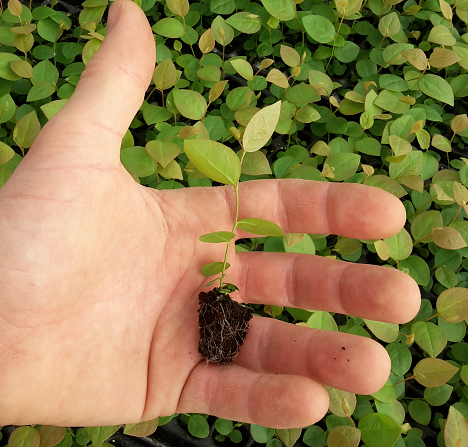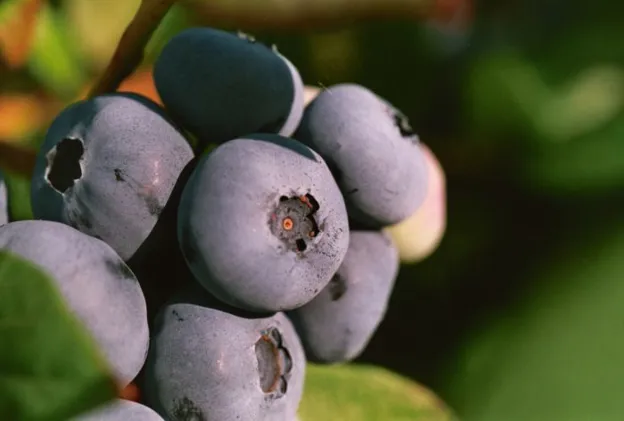The French company Multibaies, based in Angers and specialized in blueberries for over 30 years (production of plants, cuttings, containers and trays), has recently obtained the European certification for several varieties. This achievement is the result of a joint work between Multibaies, the SPMF (Syndicat des Producteurs de Myrtilles de France) and the CTIFL .
This European certification guarantees control and traceability for the producer. The in-vitro method is very popular among nurserymen and producers because of its many assets (homogeneity, vigor, reactivity and quality of presentation), but it has also been the object of some abuses in the recent years.
 © Multibaies
© Multibaies
A two-fold certification based on the EPPO/OEPP certifications
In terms of health, the viruses and pathogens concerning the Vaccinium Corymbosum are mainly exotic, which does not prevent Multibaies from proceeding with meticulous verifications. “For the blueberry crop, we do not necessarily have the viruses and pathogens that can be found in other varieties. It is a relatively unconstrained species unlike the raspberry, blackberry and strawberry. There is therefore less sanitary pressure on this species originating from America. The risk lies mainly in the fact that pathogens might be brought in during import.”
According to Mathieu Billotte, the risks lie mainly in varietal conformity. “Many growers, especially at the beginning, do not measure the risks of buying from a nursery which does not carry out the multiplication itself. Some specialists are now subcontracting the in-vitro multiplication for cost reasons, and therefore no longer have control over the risks. And with this model, there is no traceability anymore on the origin of the plant and on the manufacturing method.”
Additional guarantees for the producer
The European certification helps improve the traceability chain by fighting against the practices that have developed widely in recent years. “The goal is to bring additional guarantees to our producer clients. The only true certification available is the EU certification (following the 2008/90/CE directive) because it imposes traceability and controls that are not available anywhere else. Other ‘similar certifications’ have also been put forward but they do not guarantee the lineage between the mother plant and its supposed descendants.”

Portability within Europe
Another advantage, according to Mathieu Billotte, is that “our nursery clients in Europe will benefit from portability.” More concretely, this means that nurserymen within the EU will be able to buy young plants certified in France and then repot them in their home country and offer an EU-certified end product to their producer client.
Key to accessing European planting subsidies
By obtaining the EU certification this year already, the Multibaies nurseries are anticipating the future obligation to plant certified plants in order to access planting subsidies. No doubt that this new financial constraint will be a strong argument for this new certification to rapidly become the new norm.
Passport for export
For Multibaies, which exports 80% of its plants abroad, the EU certification will also help reach some destinations with increasingly restrictive regulatory standards, but nothing is certain yet for other markets.
“Some markets, like the American market for example, are prohibited. Even with the highest certification, it is impossible for us to export to the United States. But they can export to us. Millions of plants are currently shipped from the US to the European Union. But these plants are not EU-certified, so will they still be allowed to enter the European market? According to Mathieu Billotte, this is a significant point that could bring a bit more fairness in terms of competition. “Manufacturing high-quality plants is our purpose. It would be our great pleasure to share our expertise with structuring players, genetics owners, so they can offer EU-certified plants.”
For more information:
Mathieu Billotte
Multibaies
Phone: +33 2 41 42 14 14
Mobile: +33 6 24 98 43 14
contact@multibaies.com
www.multibaies.com
